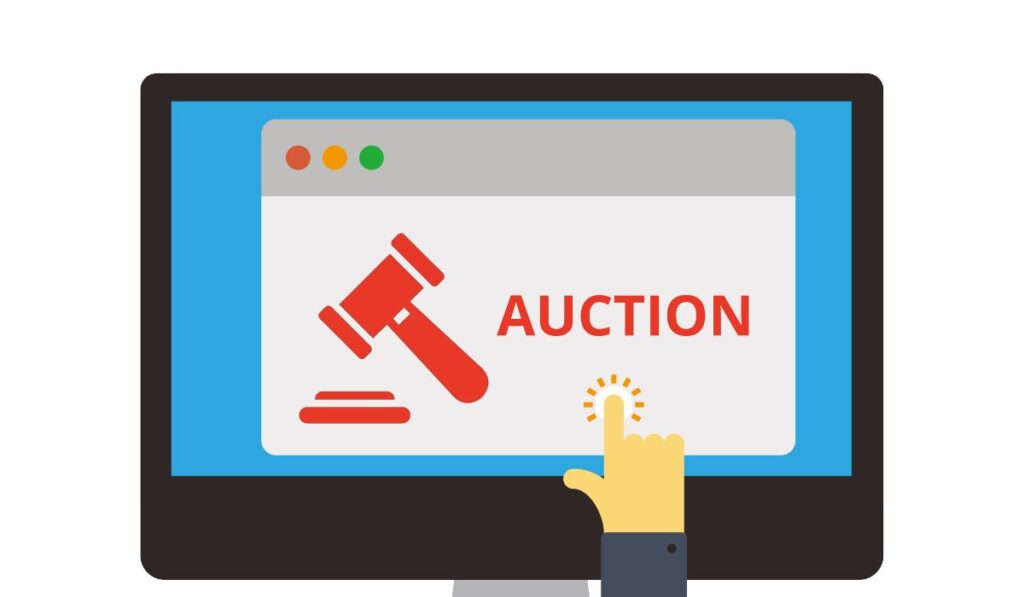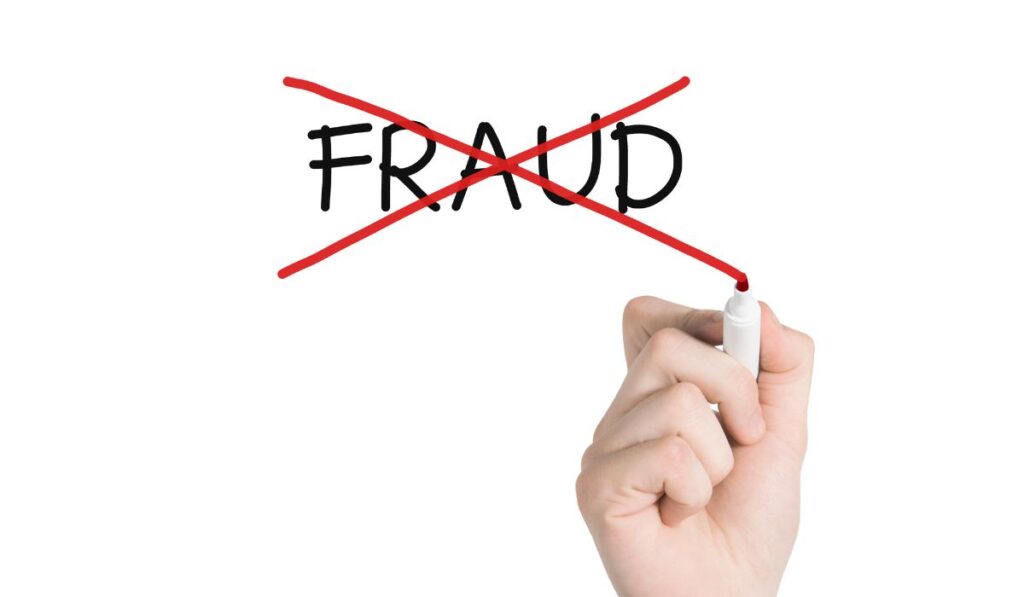Online Auction Fraud: Recognizing the Risks and Protecting Your Purchases

Online auctions have become increasingly popular, offering a convenient platform for buying and selling a wide range of goods. However, with the growth of online transactions comes the risk of fraud. In this article, we will delve into the world of online auction fraud, shedding light on the tactics used by scammers and providing essential tips to help you protect yourself in the digital marketplace.
By understanding the common techniques employed by fraudsters and learning how to spot potential scams, you can navigate online auctions with confidence and minimize the risk of falling victim to fraudulent activities. Whether you are a seasoned online auction participant or new to the world of digital bidding, this article will equip you with the knowledge and tools to stay safe and secure in your online transactions.
From identifying red flags and suspicious behaviors to implementing preventive measures, we will cover a range of topics to ensure that you are well informed and prepared to engage in online auctions responsibly. Let’s dive in and empower ourselves to make informed decisions in the digital marketplace, safeguarding our interests and preserving the integrity of online auction platforms.
Table of Contents
Understanding Online Auction Fraud
Online auction fraud refers to fraudulent activities that occur within the context of online bidding platforms, where individuals or businesses engage in buying and selling goods. While online auctions provide a convenient way to access a wide range of products, there are inherent risks involved, primarily due to the anonymity and distance between buyers and sellers.
One common form of online auction fraud is the non-delivery of goods. In this scenario, a buyer pays for an item but never receives it. Fraudsters may create fake listings or pose as legitimate sellers, enticing buyers with attractive offers and then disappearing once the payment is made.
Another form of online auction fraud involves counterfeit items. Scammers may advertise high-demand products at seemingly attractive prices, only to deliver cheap knock-offs or completely fake goods.
Shill bidding is yet another deceptive tactic used in online auctions. In this case, the fraudster poses as a legitimate bidder, artificially driving up the price of an item to create a false impression of demand. This manipulative practice misleads genuine bidders and can result in overpaying for an item.
The consequences of falling victim to online auction fraud can be both financial and personal. Buyers may lose their money without receiving the promised goods, while sellers may face reputational damage or financial loss due to fraudulent chargebacks. Additionally, personal information shared during the transaction can be used for identity theft or further scams.
To protect yourself from online auction fraud, it is crucial to exercise caution and take necessary precautions. Stick to reputable platforms with robust buyer and seller protections. Read product descriptions and seller reviews carefully, and be skeptical of deals that seem too good to be true. Use secure payment methods and avoid sharing sensitive information outside of the platform’s system.
Remember, the responsibility for ensuring safe transactions lies with both buyers and sellers. By being vigilant, informed, and using the platform’s built-in security features, you can reduce the risk of falling victim to online auction fraud and enjoy a positive and secure online shopping experience.
Common Red Flags of Online Auction Fraud

When participating in online auctions, it’s essential to be aware of red flags that may indicate potential fraud. Here are some common warning signs to watch out for:
- Meager prices: If a listed item’s price seems significantly lower than its market value or other similar listings, it could be a red flag. Scammers often use tempting prices to attract unsuspecting buyers.
- Incomplete or misleading item descriptions: Pay attention to item descriptions that lack important details or contain vague information. Fraudsters may provide limited descriptions to prevent suspicion or mislead buyers about the item’s condition.
- Suspicious seller profiles: Take the time to review the seller’s profile, including their ratings, feedback, and transaction history. Be cautious if the seller has a low rating, negative reviews, or a limited selling history, as it could indicate a fraudulent account.
- Request for off-platform communication or payment: Be wary of sellers who try to take the transaction off the auction platform or ask for alternative payment methods. Genuine sellers typically prefer to complete transactions within the platform’s secure system.
- Pressure to complete the transaction quickly: Scammers often create a sense of urgency to push buyers into hasty decisions. If a seller insists on immediate payment or pressures you to close the deal rapidly, it could be a sign of fraudulent activity.
- Limited or unusual contact information: Check the seller’s contact information provided on their profile. Be cautious if it seems incomplete, suspicious, or differs from the typical contact details of legitimate sellers.
- Poor grammar or spelling errors: Many fraudulent listings or communications contain noticeable grammar and spelling mistakes. These errors can indicate that the seller is not professional or legitimate.
Remember, these red flags do not guarantee fraud but should raise your suspicion and prompt further investigation. It’s essential to thoroughly evaluate the seller, item listing, and transaction details before proceeding with an online auction.
Secure Buying Practices on Online Auction Platforms
When engaging in online auctions, it’s crucial to follow secure buying practices to protect yourself from fraud and ensure a smooth transaction. Here are some recommended practices:
- Research the item: Before placing a bid, take the time to research the item and its market value. This will help you make an informed bidding decision and avoid unrealistic deals that may be too good to be true.
- Communicate with the seller: If you have any questions or concerns about the item, reach out to the seller through the auction platform’s messaging system. Ask for additional details, such as the item’s condition, specifications, and any available warranty or authenticity documentation. Clear communication with the seller can help you assess their credibility and the legitimacy of the listing.
- Use secure payment methods: Opt for secure payment options provided by the online auction platform. These typically include credit cards, PayPal, or other trusted payment gateways. Avoid making payments through wire transfers or direct cash transactions, as these methods offer little to no buyer protection.
- Review seller ratings and feedback: Check the seller’s ratings and feedback from previous buyers. This will give you insights into their reputation and reliability. Favor sellers with positive reviews and a history of successful transactions.
- Be cautious of non-delivery or counterfeit items: Online auction fraud often involves non-delivery of purchased items or the sale of counterfeit goods. If the seller fails to deliver the item within a reasonable timeframe or if you receive an item that significantly differs from the description, contact the auction platform’s customer support to report the issue and seek resolution.
- Report suspicious activity: If you encounter a suspicious seller or suspect fraudulent activity, report it to the online auction platform. Most platforms have reporting mechanisms in place to address such incidents and take appropriate action.
By following these secure buying practices, you can minimize the risk of falling victim to online auction fraud and enjoy a safer shopping experience.
Protecting Yourself from Non-Delivery Fraud
Protecting yourself from non-delivery fraud is essential when engaging in online auctions. Here are some additional steps you can take:
- Check the seller’s shipping policies: Review the seller’s stated shipping policies, including estimated delivery times and shipping methods. Ensure that the shipping options align with your expectations. Be wary of sellers who offer unusually long delivery times or those who claim to ship from abroad when the item is listed as local.
- Understand the return policy and refund options: Familiarize yourself with the seller’s return policy and refund options in case the item is not as described or if it is never delivered. A reputable seller should have clear guidelines for returns and refunds. Avoid sellers who have strict or unclear return policies.
- Document all communications and transactions: Keep a record of all communications with the seller, including emails, messages, and any other interactions. Take screenshots of the item listing, payment receipts, and shipping information. These records can be helpful if you need to file a complaint or report the seller to the auction platform.
- Utilize escrow services or third-party payment platforms: Consider using escrow services or reputable third-party payment platforms that offer buyer protection. Escrow services hold the payment until you receive and approve the item. This provides an additional layer of security and reduces the risk of non-delivery fraud.
- Trust your instincts: If a deal seems too good to be true or if you have doubts about the seller’s legitimacy, trust your instincts and proceed with caution. It’s better to be safe than sorry when it comes to online transactions.
Remember, following these protection measures can help safeguard you against non-delivery fraud and ensure a positive online auction experience.
Identifying Counterfeit Items and Shill Bidding
Identifying counterfeit items and shill bidding is crucial when participating in online auctions. Here are some additional tips to help you in this regard:
- Conduct thorough research on high-value or branded items: Before bidding on expensive or branded items, educate yourself about their key features, packaging, and other identifying characteristics. Compare the item in question to authentic examples available from reputable sources. Look for discrepancies in logos, markings, quality, or packaging that may indicate a counterfeit.
- Be cautious of unusually low prices: If an item is listed at a significantly lower price compared to its market value, exercise caution. Counterfeiters often sell fake items at low prices to attract buyers. Research the average market value of the item and be skeptical of deals that seem too good to be true.
- Pay attention to seller feedback and ratings: Check the seller’s feedback and ratings to assess their reputation. Look for consistent positive reviews and a history of successful transactions. Be wary of sellers with a low rating, negative feedback, or a limited selling history, especially when dealing with high-value items.
- Recognize signs of shill bidding: Shill bidding refers to fraudulent bidding practices where the seller or accomplices artificially inflate the bids to drive up the price. Look for suspicious bidding patterns, such as repetitive bids from the same accounts, bids that quickly surpass the item’s market value, or bids from newly created or low-feedback accounts. Report any suspicious activity to the auction platform.
By conducting thorough research, being cautious of low prices, and recognizing signs of shill bidding, you can minimize the risk of purchasing counterfeit items or engaging in fraudulent bidding on online auction platforms.
Reporting and Resolving Online Auction Fraud
If you encounter online auction fraud, it’s essential to take immediate action to report the fraudulent activity and seek resolution. Here are some steps you can take:
- Report the fraud to the online auction platform: Most online auction platforms have reporting mechanisms in place to address fraudulent activity. Report the incident to the platform’s customer support or through their designated reporting channels. Provide them with detailed information about the fraudulent seller, including their username, listing details, and any evidence you have gathered.
- Contact the relevant authorities: If you believe you have been a victim of online auction fraud, consider reporting the incident to your local law enforcement agency. Provide them with all the relevant information and evidence you have gathered. They may be able to investigate the case and take appropriate action.
- Seek assistance from customer support: Reach out to the customer support team of the online auction platform and explain the situation. They can guide you through the process of filing disputes or claims for reimbursement. Be prepared to provide any supporting evidence, such as screenshots, communications with the seller, and transaction records.
- Preserve evidence: Document all relevant details of the fraudulent transaction, including screenshots of the item listing, communications with the seller, payment receipts, and any other evidence. This information will be crucial when filing disputes or claims.
- Be patient and persistent: Resolving online auction fraud may take time and effort. Stay in regular communication with the online auction platform and follow their instructions regarding the resolution process. Be persistent in seeking a resolution and provide any additional information or evidence they may request.
Remember, prevention is key to avoiding online auction fraud. Research sellers, verify their reputation, and use secure payment methods to minimize the risk of falling victim to fraudulent activities.
Enhancing Online Auction Safety
To enhance online auction safety, it’s important to learn from real-life examples and cautionary tales of online auction fraud. By understanding the tactics used by scammers and the experiences of others, you can become more vigilant and better equipped to identify potential scams. Consider engaging in community forums and online discussions where users share their experiences and provide advice on staying safe during online auctions.
Here are some tips to enhance online auction safety:
- Educate yourself: Stay informed about the latest scams, fraud techniques, and best practices for safe online auction transactions. Research and learn from reputable sources, including online auction platforms and consumer protection organizations.
- Use reputable platforms: Stick to well-established and reputable online auction platforms with robust buyer protection policies. These platforms often have measures in place to detect and prevent fraudulent activities.
- Verify seller reputation: Before engaging in a transaction, carefully review the seller’s feedback, ratings, and reviews. Look for positive feedback from previous buyers and avoid sellers with a history of complaints or suspicious activities.
- Ask questions and request more information: Reach out to the seller and ask specific questions about the item, its condition, and any relevant details. A genuine seller will be responsive and provide accurate information. If the seller avoids answering questions or provides vague responses, consider it a potential red flag.
- Be cautious of unusually low prices: If a listing seems too good to be true, it probably is. Exercise caution when encountering significantly lower prices compared to similar items. Fraudsters may lure victims with attractive prices to entice them into fraudulent transactions.
- Use secure payment methods: Opt for secure payment methods offered by the online auction platform, such as escrow services or payment gateways. These methods provide an added layer of protection and help safeguard your financial information.
- Trust your instincts: If something feels off or suspicious during an online auction transaction, trust your instincts. If a seller exhibits suspicious behavior, the listing lacks important details, or you feel pressured to make a hasty decision, it’s best to err on the side of caution and avoid the transaction.
Remember, sharing your experiences and knowledge with others can help raise awareness and protect fellow online auction participants from falling victim to fraud. By actively participating in community forums and discussions, you contribute to a safer online auction environment for everyone involved.
Pillar Support: Strengthening Online Auction Security

Pillar Support is a leading provider of online fraud prevention and mitigation services. We specialize in helping individuals and businesses enhance their online auction security and protect themselves from fraudulent activities.
Our tailored solutions are designed to address the unique challenges and risks associated with online auctions. We offer comprehensive fraud awareness training programs that educate participants on the latest scam techniques, red flags to watch out for, and best practices for secure online transactions.
In addition, Pillar Support provides secure payment solutions that offer an extra layer of protection during online auctions. Our payment gateways and escrow services ensure that your financial information is safeguarded and transactions are conducted securely.
In the unfortunate event of a fraud incident, our team of experts is ready to assist you with incident response planning and recovery. We work closely with individuals and businesses to mitigate the impact of online auction fraud and help in the resolution process.
By partnering with Pillar Support, you can proactively strengthen your online auction security, minimize the risk of fraud, and ensure a safer and more trustworthy online auction experience.
Contact Pillar Support today to learn more about our services and how we can assist you in safeguarding your online auction transactions. Together, we can create a more secure environment for online auctions.
Frequently Asked Questions
What Are the Categories of Online Auction Fraud?
Online auction fraud can be categorized into various types, including non-delivery fraud, counterfeit items, shill bidding, and bid siphoning. Each type involves different deceptive tactics used by fraudsters to exploit unsuspecting buyers.
Are Online Auctions Legitimate?
Yes, online auctions can be legitimate platforms for buying and selling goods. However, it is important to exercise caution and follow best practices to avoid falling victim to scams or fraudulent activities. Researching sellers, verifying item authenticity, and using secure payment methods are essential steps to ensure a safe and legitimate online auction experience.
Can You Get a Refund From an Auction?
The refund policy for online auctions varies depending on the platform and the seller. It is important to review the terms and conditions of the auction and the seller’s return policy before making a purchase. If you encounter a fraudulent transaction or non-delivery of goods, you should report the issue to the auction platform and seek assistance in resolving the matter.
What Happens in an Online Auction?
In an online auction, individuals or businesses can bid on items listed for sale. Bidders compete by placing incremental bids, and the highest bidder at the end of the auction wins the item. Online auctions typically have a specified duration, and participants can monitor and place bids on the items they are interested in. Online auctions provide a platform for buyers and sellers to engage in transactions without physical presence.